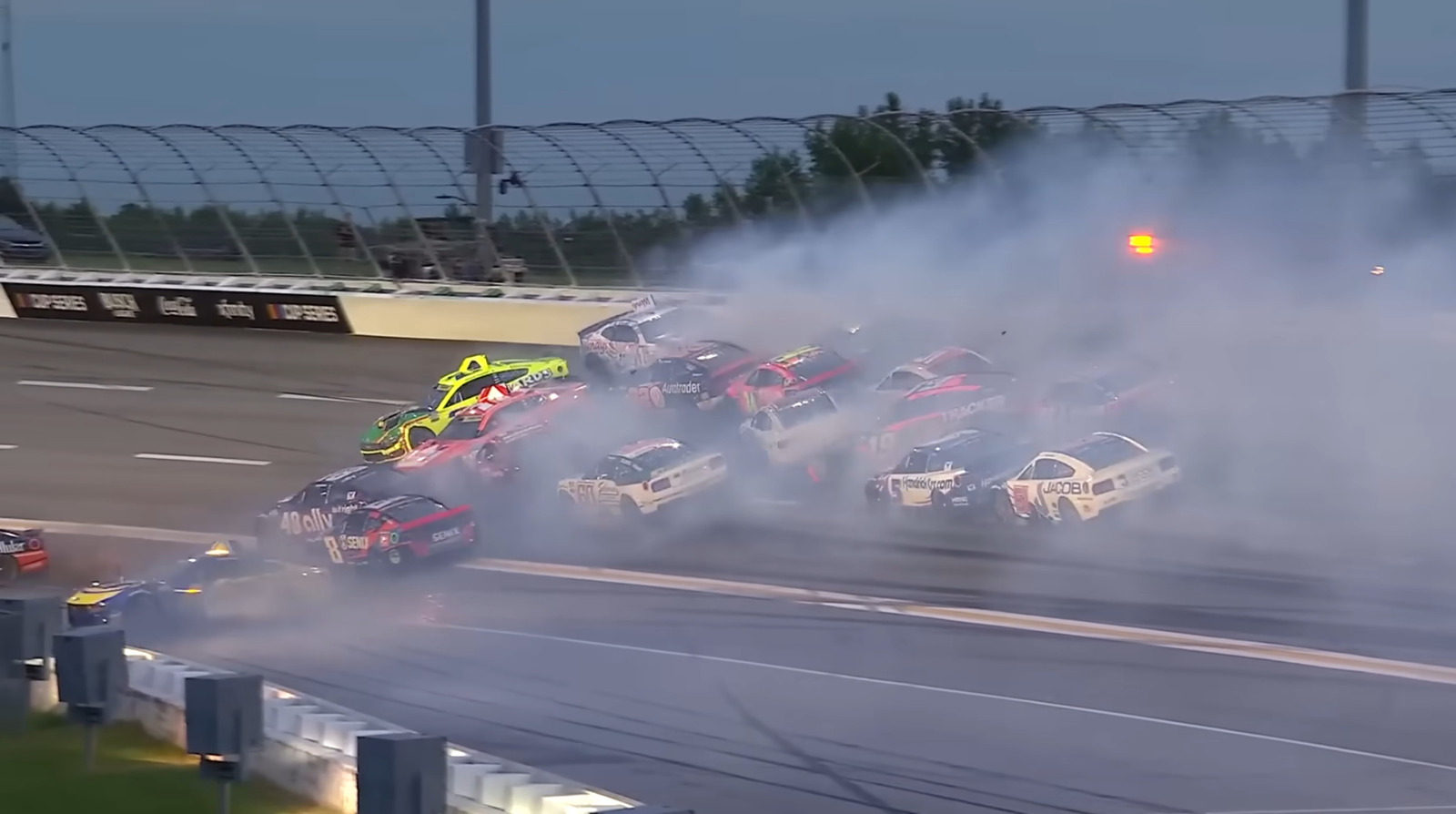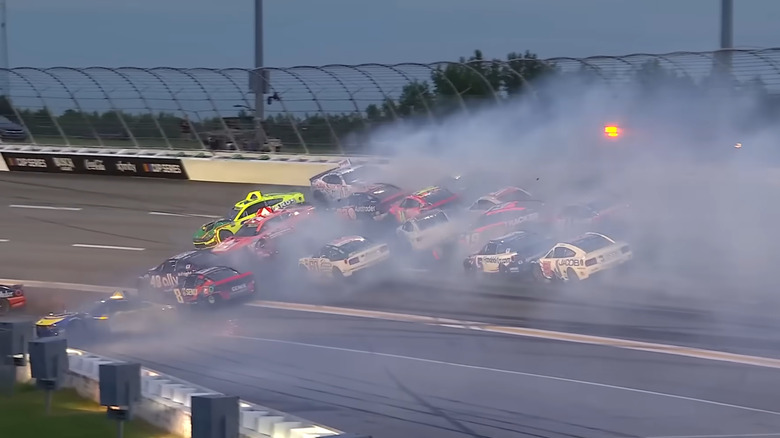It’s not difficult to parse out why races at Daytona and Talladega get more attention than other events on the NASCAR Cup Series schedule. The razor-thin margins of victory and the endless highlight reel of field-decimating wrecks enthrall casual viewers by the millions. Atlanta Motor Speedway, the newest drafting track, played host to a 23-car crash during Sunday’s Quaker State 400. Speedway Motorsports decided it wanted a piece of the pack racing action by revamping Atlanta ahead of the 2022 season. By the number of cars involved, it was the largest Cup Series crash away from the two aforementioned NASCAR-owned superspeedways.
During the race’s second stage, Denny Hamlin made contact with John Hunter Nemechek as the pack raced down the backstretch. Nemechek’s No. 42 Camry bounced off the outside wall, then Hamlin’s No. 11 Camry fishtailed in front of the field. After the initial collisions, the entire track was blocked by sliding machinery. There was little that drivers further behind could do other than skid into the carnage. Race officials were forced to throw a red flag because there was no way for the surviving cars behind the pace car to maneuver around the clean-up efforts.
NASCAR pack racing is a roulette game followed by a sprint
Hometown hero Chase Elliott would go on to win the race, his first victory this season, punching his ticket to the playoffs. As a sign of the carnage, Kyle Larson was the highest placed of this season’s race winners in 17th. He too was involved in the Big One.
While the chaotic nature of the drafting track is entertaining, it creates an environment where winning the race feels like a lottery. Yes, there’s clearly a level of skill involved if it’s a small club of drivers who consistently find themselves at the front of these things. However, the drafting specialists are often wiped out in the Big One. Your chances of surviving a massive wreck are solely based on where you are when one starts. That’s not skill, that’s luck.
SMI’s decision to reconfigure Atlanta, now officially called EchoPark Speedway after a seven-year naming rights deal, was an unnecessary move for attention. The current NextGen rules package has proven to be transcendent at the style of track that Atlanta once was. The 1.5-mile intermediate cookie cutters were once derided as boring and undeservedly clogging up the schedule. Now, they produce some of the best racing in the Cup Series, all without pack racing. In 2024, Kansas Speedway produced the closest finish in NASCAR history with 0.001 seconds between first and second.



